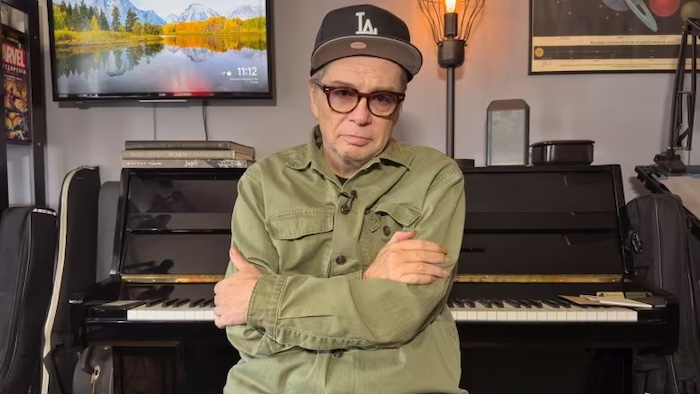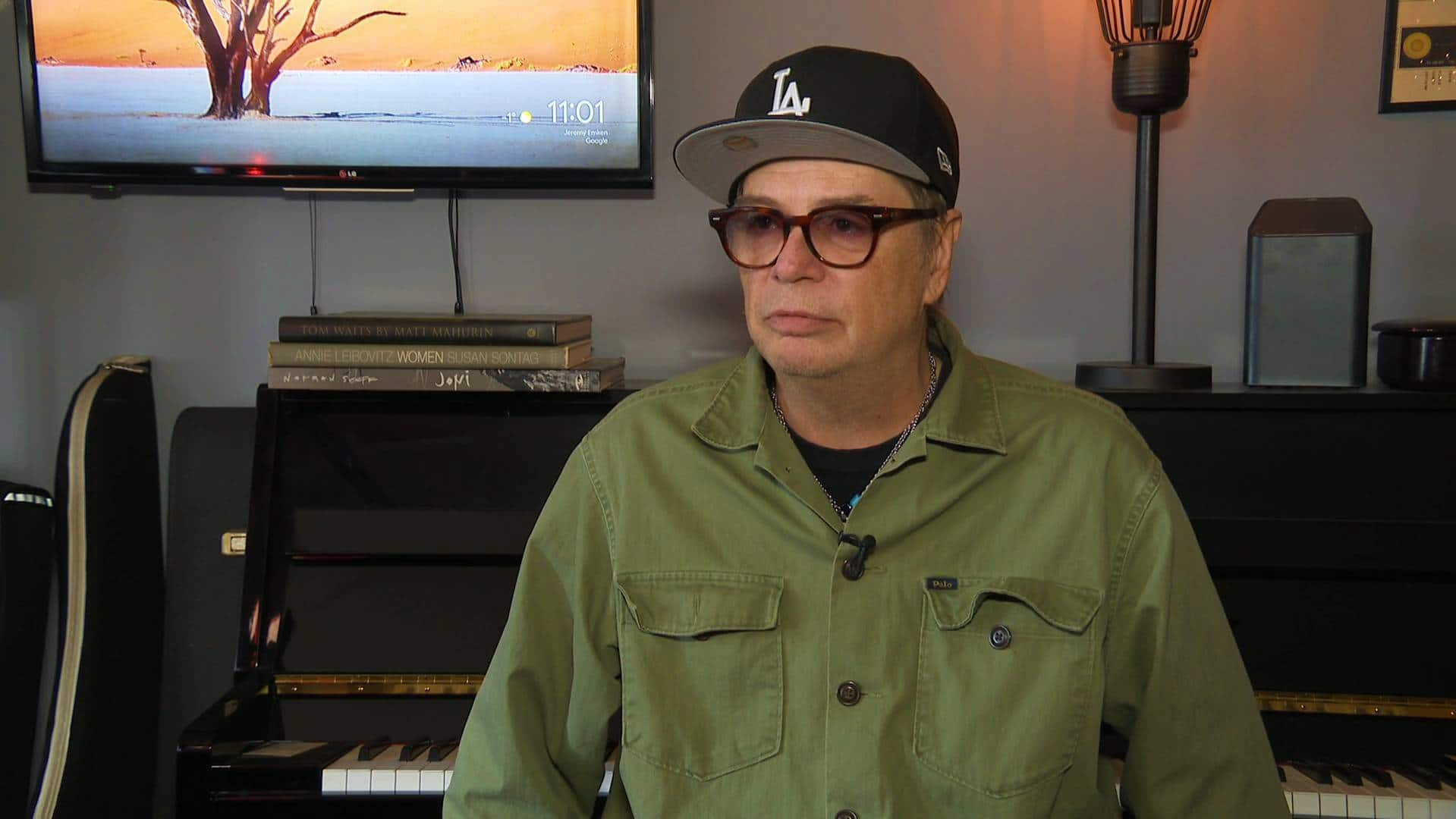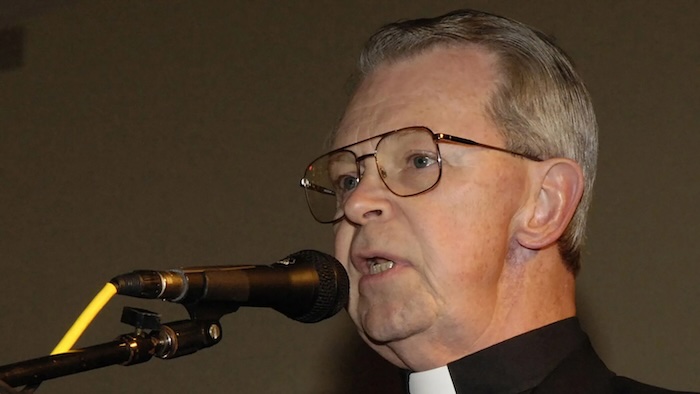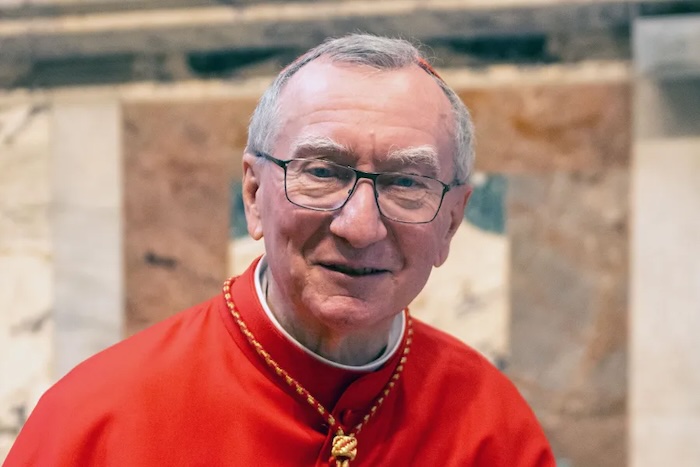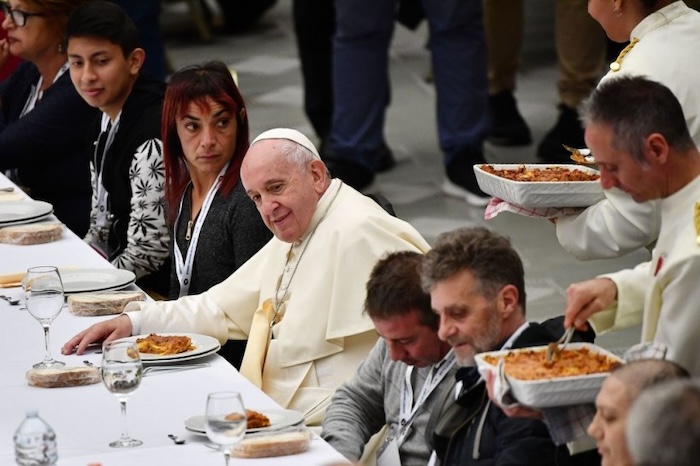— In media blitz, cardinal insists he is not a crook

By Ed. Condon
With the Vatican City court due to deliver its verdict in the landmark financial crimes trial in just three weeks, defendant Cardinal Angleo Becciu has once again insisted on his innocence and said he “has faith” he will be acquitted of all charges.
Over the past week, the cardinal and his legal team mounted a full court press in Italian media, with Becciu giving a rare TV interview and his lawyers seeding friendly coverage in local and national newspapers.
Becciu stands accused of embezzlement and abuse of office, conspiracy, as well as perverting the course of justice. But while the cardinal and his team are predicting total exoneration, how confident should they really be about his chances?
‘Modest’ means and good intentions
In an interview last week with Italy’s state broadcaster, Rai, Cardinal Becciu appeared to present himself as a kind of suffering innocent, patiently awaiting his vindication.
“I continue to proclaim my innocence and I can say that I have never stolen,” Becciu said, suggesting that his personal financial circumstances were themselves a kind of proof of his honesty in office at the Secretariat of State, where he oversaw departmental finances until June of 2018.
“I have never improved my economic position. I don’t have villas, I don’t have houses, I don’t have apartments and my accounts are very, very modest.”
But Becciu’s claim to “modest” financial circumstances will likely strike many trial watchers, perhaps including the Vatican City judges, as curious, given some of the evidence they have heard over the last two-and-a-half years.
Among the charges he faces, the cardinal is accused of diverting Church funds to employ Cecilia Margona, a self-styled private intelligence agent, who has claimed to have been paid by Becciu to engage in clandestine work for the Vatican, as well as to spy for the cardinal on other curial officials.
According to evidence presented during the trial, Becciu instructed his deputy at the secretariat to pay Marogna via her Solvenian holding company without explaining where the money was going or why — and later upbraided him for not deleting departmental records of the transactions.
Financial records also show that the money sent to Marogna by Becciu was spent on designer label goods, luxury travel, and five-star resorts.
Becciu is also on trial for his role in a range of complicated investments, on which the Holy See lost hundreds of millions of euros — including the deal which involved the purchase of a London building.
“My intent was only to create advantages for the Holy See, to do only the good of the Holy See,” the cardinal told Rai, echoing his previous statements in court that he had been presented with “a proposal that was totally advantageous for the Holy See” but that he found recalling the details of the deal “difficult” for him and laid responsibility for the structuring of departmental investments on his staff.
But Vatican judges will have to weigh Becciu’s claims to have only ever acted for the good of the Holy See against testimony that he was actually the architect of a plan to funnel hundreds of millions of euros to a friend of his in the African nation of Angola.
That deal, The Pillar has previously been told by Becciu’s co-defendant Raffaele Mincione, would have seen Church money used to pay off the debts of Antonio Mosquito but offered little if any prospect of a return on the investment.
Becciu’s alleged largesse with Church funds also supposedly extended to his own family, for whom he is accused of misappropriating hundreds of thousands of euros in Church funds.
A key transaction is 250,000 euros sent by Becciu to bank accounts controlled by his brother, Antonio Becciu, who runs the Spes Cooperative, a Catholic charity in Sardinia.
Cardinal Becciu has insisted during the trial that it is ordinary practice for Vatican funds to be deposited with individuals, including family members, for charitable purposes, but Vatican and Italian prosecutors have taken a different view, and identified forged delivery receipts for nearly 20 tons of bread, which was supposedly delivered to parishes by Spes for distribution to the poor.
Both Cardinal Becciu’s brother Antonio and the local director of Caritas, Fr. Mario Curzu, are under investigation by Italian authorities in Sardinia as part of their enquiry into the matter. Both have refused to appear during the Vatican trial, despite repeated summons.
Sources close to the prosecution have previously told The Pillar that the priest and Becciu’s brother refused to appear in court because they were concerned they would face the choice either to implicate themselves in criminal activity or make false statements, which could have been used against them by Italian prosecutors.
The pope’s good servant?
Throughout his investigation and trial, Cardinal Becciu has repeatedly said that any suspect activity he may have engaged in was done with explicit papal approval.
Francis, for his part, has pointedly disagreed with that narrative, turning over to the court his private correspondence with the cardinal in which he rebuffed demands by Becciu that he shield him from prosecution.
Ever since his dismissal from curial service in 2020, Becciu has made a point of asserting his deep, personal loyalty to Pope Francis. But those assertions have also come under close scrutiny during the trial.
The cardinal has since insisted the matter is overblown — despite his recording of the pope appearing to constitute a separate criminal act all its own. In his TV interview last week, he sought to brush the incident aside saying that it was a non-incident until prosecutors got ahold of the tape.
“That phone call was already dead, no one knew about it,” Becciu told Rai. “I’ve never used it, but someone else wanted to publish it.”
Whether the pope and the judges feel the same way will become clearer in the coming weeks. But Becciu went further in his interview, trying to paint himself as a champion of reform and — though it may strike many court watchers as incredible — a victim for his efforts to bring financial transparency to the Vatican.
Asked if he agreed with “the effort the Pope is making to bring more cleanliness and transparency to the use of money in the Vatican,” Becciu responded “I can say that I am proud to have helped the Pope initiate these reforms.”
Given that those charged with actually bringing Francis’ economic reforms have repeatedly and publicly identified Becciu as the single greatest roadblock to their work, and that he acted to prevent any external oversight of the Secretariat of State’s financial affairs.
Speaking to Rai, Becciu went further, claiming that, as part of his reforming record, he “also took the liberty of pointing out to the Pope that certain people did not deserve to be in the Vatican.”
That boast would appear to be a bold reference to the case of the Vatican’s former auditor general, Libero Milone, whom Becciu had detailed by Vatican police and forced to resign from office under threat of criminal prosecution in 2017.
Becciu said at the time Milone had been “spying” on the private financial affairs of senior Church officials, including Becciu, and that the cardinal had convinced the pope to order his ouster.
He told Rai last week that he was “certainly” a victim of people opposed to financial reforms, and that “they almost accused themselves by making accusations against me.”
The logic and wisdom of those statements is likely to come under very close scrutiny by Vatican judges like Giuseppe Pignatone who, in addition to being the chief judge in Becciu’s criminal trial, is separately hearing a lawsuit for wrongful dismissal brought against Becciu’s former department by Milone.
While Becciu insists in television that he was a champion of reform and a victim of the likes of Milone, lawyers for his former department have recently walked away from the cardinal’s arguments in a bid to avoid liability for Milone’s termination.
Lawyers close to the Milone lawsuit have told The Pillar that all sides of the case increasingly see Becciu’s criminal conviction for abuse of office as presenting a “gentlemanly way of resolving” of the suit for all sides.
‘I have faith’
In that event that Becciu is convicted, the cardinal would face a potential prison sentence of up to seven years — something he told Rai he refuses to consider as a possible outcome.
Asked if he would appeal to the pope for clemency in the event he faced a lengthy jail term, he told Italian TV that “I don’t want to think about it. I don’t want to think about the possibility of conviction.”
“I have faith,” Becciu said. “The same Holy Father, who meets the all same various people I have, has always told me to have faith, to have faith.”
While the cardinal will have to wait a least a few more weeks to discover his fate, many around the case will likely remember the long list of times he’s invoked his faith in Pope Francis to come to his aid during the trial.
In this life, at least, that faith has not yet saved him.
Complete Article ↪HERE↩!

